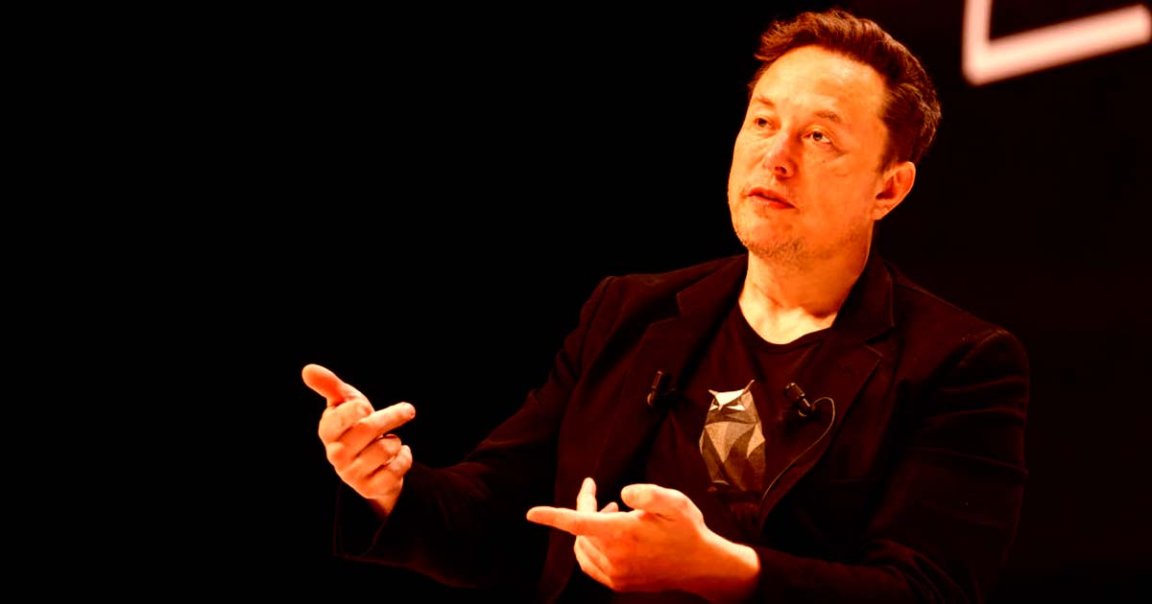
Best-Case Scenario
Tesla’s stock took a dive following its much-hyped but disappointingly lackluster robotaxi event.
But ironically, Uber and Lyft — two ride-sharing companies who theoretically stand to lose some of their dominance if a competitor’s driverless taxi service takes off — saw their stocks soar.
As of Friday, both Uber and Lyft shares are up by around ten percent, while Tesla’s has stooped down by about eight percent. If Elon Musk’s “Cybercab” reveal was meant to herald a new age of fully autonomous transportation, it appears that Wall Street’s faith currently rests on having humans at the wheel.
“We consider the event a best-case outcome for Uber,” John Colantuoni, an equity analyst at Jefferies, wrote in a note on Friday, as quoted by Quartz. “We expect Uber to react positively now that investors can focus on fundamentals.”
Devil in the Details
Colantuoni characterized Tesla’s robotaxi showcase as “toothless,” which is an opinion echoed by many analysts.
Much of that blame is being laid on Musk, who could only make vague promises about the Cybercab. In his own words, the robotaxi would “probably” enter production by 2026 or “before” 2027, which he undercut by admitting he tends to be optimistic.
In addition, he highlighted that the finished car would sell for less than $30,000. That’s also questionable, though, because Tesla has never made a car that cheap. The automaker also failed to share any news on an affordable, $25,000 EV that Musk has long teased.
In short, the idea that Tesla could release a brand new car running experimental technology while being one of its cheapest-ever vehicles is, to put it mildly, a tough sell.
But above all, Tesla did not show anything to prove that its highly-fraught Full Self-Driving mode is close to achieving Level 4 autonomy like its competitor Waymo has. As far as anyone can tell, it still has a long way to go before delivering on any of its promises.
Cab Collab
It’s worth noting that Uber and Lyft have already tried to develop driverless cars of their own but abandoned their efforts years ago.
But that doesn’t mean they’ve totally written off a robotaxi future. Uber, for example, has also partnered with Waymo, signaling its willingness to use the tech as long as someone else does the dirty work of perfecting it. After all, getting rid of its human drivers, whom it is notorious for exploiting, could save Uber money in the long run if the expensive tech ever gets cheaper to operate. Lyft enjoyed a similar partnership with the robotaxi firm Motional, but the latter paused additional deployments of its vehicles in May.
Meanwhile, Musk at the event actually encouraged Uber and Lyft drivers to buy multiple Cybercabs, Quartz reported. How they’re supposed to afford such an expense while many of them make less than minimum wage is unclear at best.
“If they can actually sort of manage a fleet of 10, 20, cars, and just take care of them like a shepherd tends their flock,” Musk said at the event. “I think that would be pretty cool. It’s gonna be a glorious future.”
More on Tesla: Tesla Shows Off Talking Robot That Sounds an Awful Lot Like a Guy Speaking Into a Microphone